
Discover the Charm of Badajoz
Badajoz, a city rich in history and culture, is nestled in the southwest of Spain near the Portuguese border. This hidden gem offers a blend of Spanish and Portuguese influences, making it a unique destination for travelers seeking a true Iberian experience. Stroll through the old town and discover the Alcazaba, a Moorish fortress that offers stunning views over the city and the Guadiana River. The narrow, winding streets of the old Jewish quarter, packed with charming shops and cafes, invite you to take a leisurely walk and soak in the atmosphere. Badajoz is also home to the impressive Cathedral of San Juan Bautista, which showcases an intriguing mix of Gothic and Baroque styles. Don't miss the chance to visit the Museum of Fine Arts, where you can admire works by Spanish artists such as Zurbarán and Goya. In addition to its historical sites, Badajoz boasts a vibrant cultural scene. The city hosts numerous festivals throughout the year, including the famous Carnival of Badajoz. Local cuisine is another highlight, with dishes like migas and caldereta de cordero offering a taste of traditional Extremaduran flavors. Whether you're exploring its ancient monuments, enjoying the local gastronomy, or immersing yourself in the lively festivals, Badajoz promises an unforgettable visit.
Local tips in Badajoz
- Visit the Alcazaba early in the morning to avoid crowds and enjoy the best views.
- Try local dishes like migas and caldereta de cordero at traditional taverns.
- Explore the old Jewish quarter for unique shops and authentic cafes.
- Check the festival calendar before planning your trip to experience local celebrations.
- Wear comfortable shoes as the old town has many cobblestone streets.
Discover the Charm of Badajoz
Badajoz, a city rich in history and culture, is nestled in the southwest of Spain near the Portuguese border. This hidden gem offers a blend of Spanish and Portuguese influences, making it a unique destination for travelers seeking a true Iberian experience. Stroll through the old town and discover the Alcazaba, a Moorish fortress that offers stunning views over the city and the Guadiana River. The narrow, winding streets of the old Jewish quarter, packed with charming shops and cafes, invite you to take a leisurely walk and soak in the atmosphere. Badajoz is also home to the impressive Cathedral of San Juan Bautista, which showcases an intriguing mix of Gothic and Baroque styles. Don't miss the chance to visit the Museum of Fine Arts, where you can admire works by Spanish artists such as Zurbarán and Goya. In addition to its historical sites, Badajoz boasts a vibrant cultural scene. The city hosts numerous festivals throughout the year, including the famous Carnival of Badajoz. Local cuisine is another highlight, with dishes like migas and caldereta de cordero offering a taste of traditional Extremaduran flavors. Whether you're exploring its ancient monuments, enjoying the local gastronomy, or immersing yourself in the lively festivals, Badajoz promises an unforgettable visit.
When is the best time to go to Badajoz?
Iconic landmarks you can’t miss
Alcazaba de Badajoz
Explore the majestic Alcazaba de Badajoz, a historic fortress combining stunning architecture and rich cultural heritage in the heart of Spain.
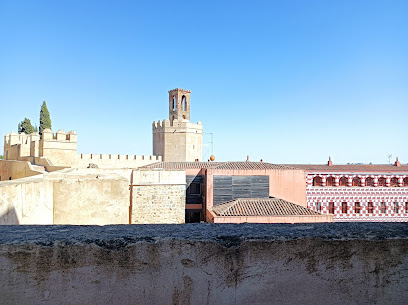
Paseo de San Francisco
Discover the tranquil beauty and cultural charm of Paseo de San Francisco, Badajoz's finest urban park, perfect for relaxation and exploration.
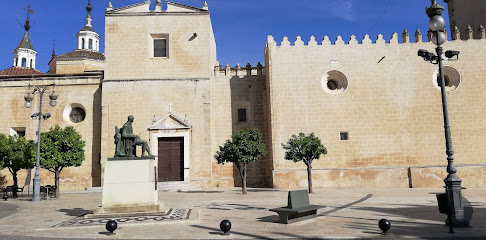
Puerta de Palmas
Explore the stunning Puerta de Palmas, a historical gateway that embodies the rich heritage of Badajoz, Spain, and offers a glimpse into its vibrant present.
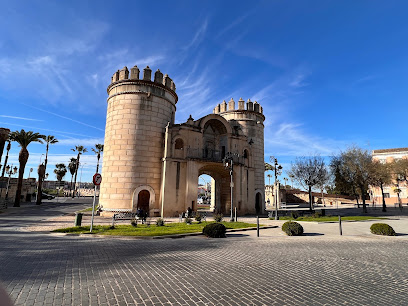
Castelar Park
Discover the natural beauty and tranquil ambiance of Castelar Park in Badajoz, a perfect escape for nature lovers and city explorers alike.
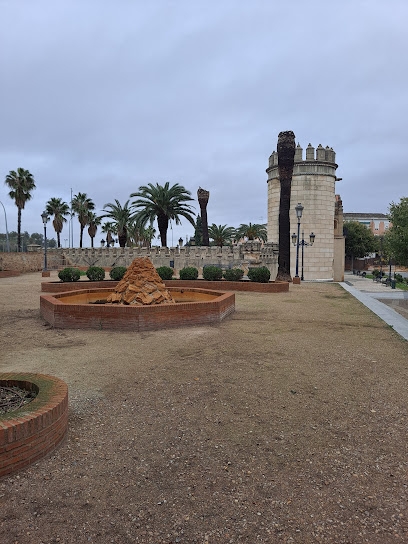
Badajoz Cathedral
Explore the breathtaking Badajoz Cathedral, a stunning blend of Gothic and Baroque architecture that reflects the rich history of Badajoz, Spain.
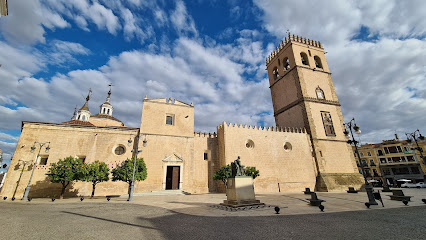
Parque de La Legión
Discover the lush landscapes and cultural vibrancy of Parque de La Legión, a serene city park in Badajoz, Spain, perfect for relaxation and exploration.
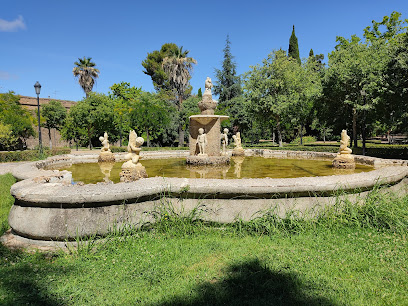
Archaeological Museum of Badajoz
Discover the rich history of Badajoz at the Archaeological Museum, showcasing captivating artifacts from ancient civilizations to modern times.
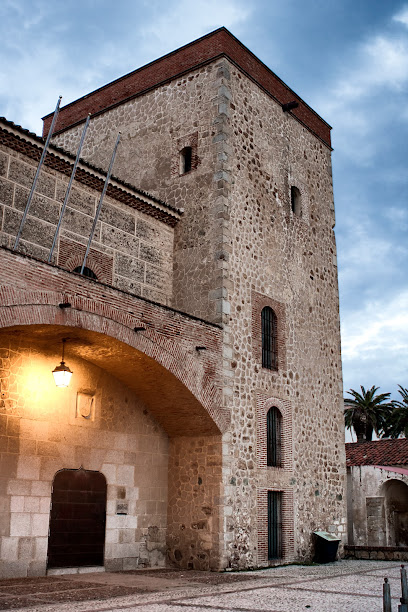
Puente de Palmas
Discover the historical and architectural wonder of Puente de Palmas in Badajoz, where nature meets history in breathtaking harmony.
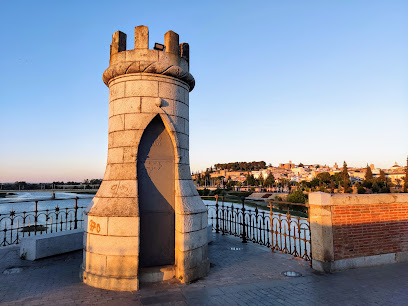
Puerta de Palmas Bridgehead
Explore the iconic Puerta de Palmas Bridgehead in Badajoz, a historical marvel that connects the past with the present, offering breathtaking views and rich culture.
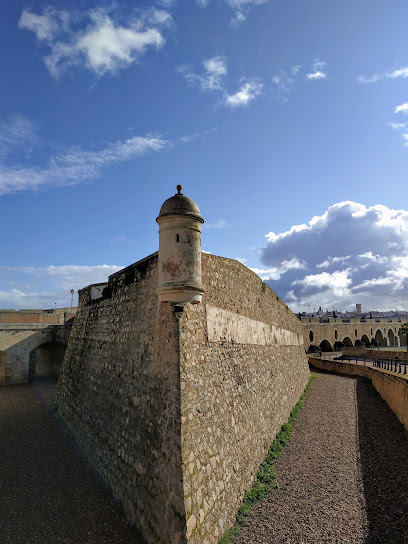
Plaza La Soledad Badajoz
Explore the historical charm of Plaza La Soledad in Badajoz, a vibrant landmark that celebrates culture, community, and tradition.
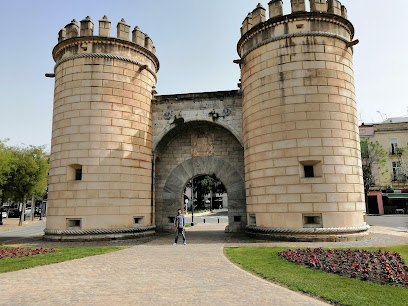
Museo del Carnaval de Badajoz
Experience the vibrant spirit of Badajoz's Carnival at the Museo del Carnaval, featuring stunning costumes and rich cultural heritage.
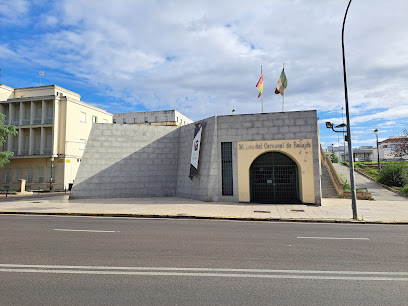
Alcazaba Park
Explore Alcazaba Park in Badajoz, a tranquil escape filled with rich history, lush greenery, and stunning views, perfect for relaxation and exploration.
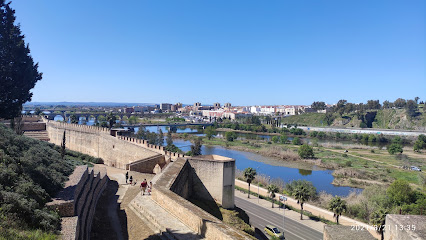
Fuerte de San Cristóbal
Explore the historic Fuerte de San Cristóbal, a majestic fortress in Badajoz, Spain, offering stunning views and rich military history.
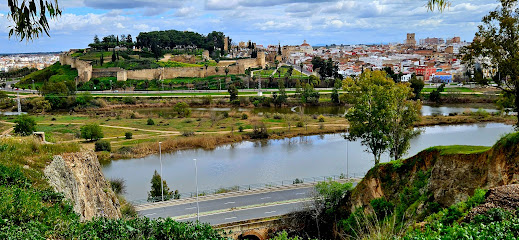
Torre Espantaperros
Explore Torre Espantaperros, a historical gem in Badajoz, offering stunning views and a journey through the city’s rich heritage.
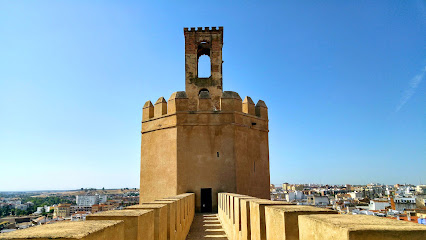
Puerta del Pilar
Explore the Puerta del Pilar, a historic monument in Badajoz, showcasing stunning architecture and rich cultural significance.
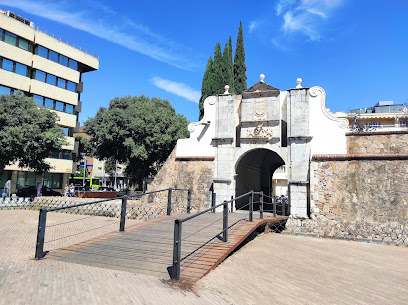
Unmissable attractions to see
Elvas Castle
Explore Elvas Castle, a UNESCO World Heritage Site, and immerse yourself in Portugal's rich history and breathtaking architecture.
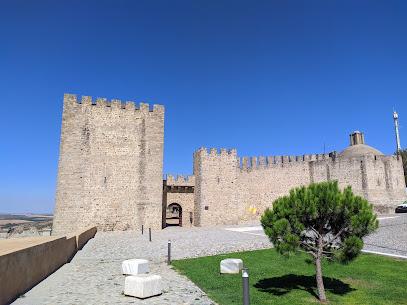
Paseo de San Francisco
Experience the serene beauty of Paseo de San Francisco in Badajoz, a perfect urban park for relaxation, picnics, and cultural events.
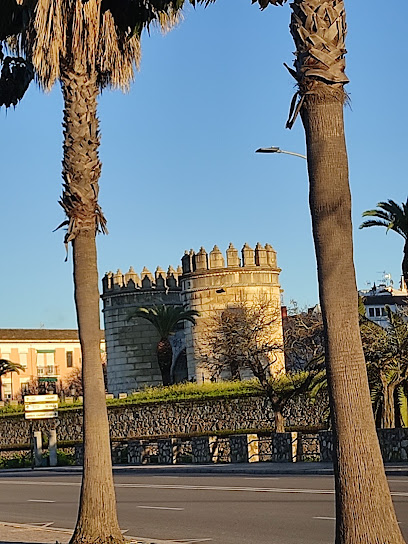
Ducal Palace of Vila Viçosa
Explore the Ducal Palace of Vila Viçosa, a historical gem showcasing Portugal's royal heritage and stunning architecture amidst beautiful gardens.
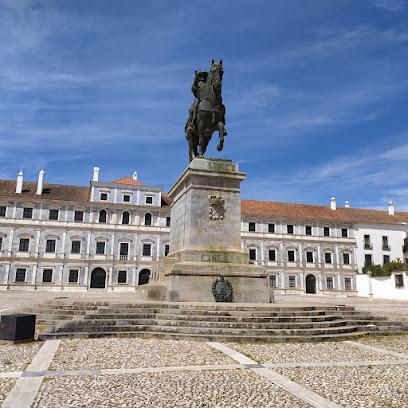
Castelar Park
Experience the tranquility of Castelar Park in Badajoz, a lush urban oasis perfect for relaxation, recreation, and cultural exploration.
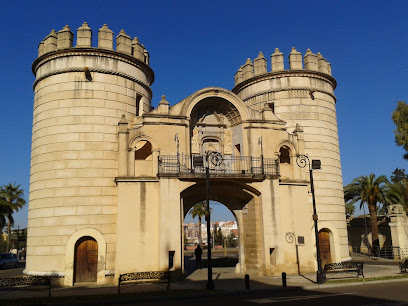
Praça da República, Elvas
Explore the historic Praça da República in Elvas, a charming square featuring stunning architecture and vibrant local culture.
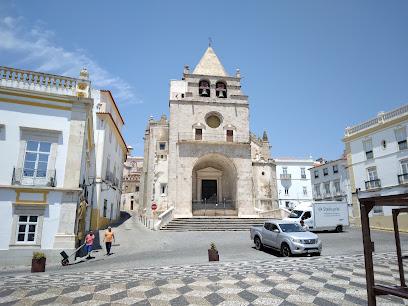
Badajoz Cathedral
Discover the Badajoz Cathedral, a stunning Gothic masterpiece in the heart of Spain, showcasing history, art, and spiritual significance.
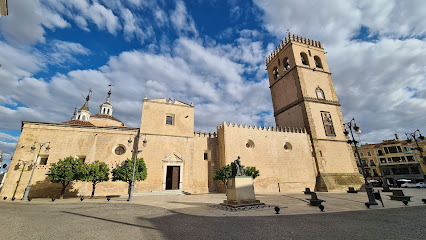
Castle of Vila Viçosa
Discover the breathtaking Castle of Vila Viçosa, a historical gem showcasing Portugal's royal past and stunning architecture in the heart of Alentejo.
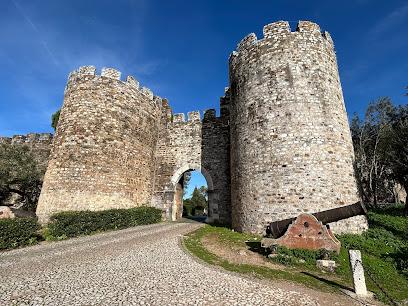
Military Museum of Elvas
Explore Portugal's military heritage at the Military Museum of Elvas, featuring fascinating artifacts and exhibits in a historic setting.
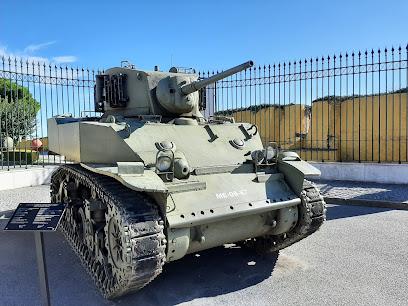
Parque de La Legión
Explore the lush landscapes and cultural treasures of Parque de La Legión, a serene park in the heart of Badajoz, perfect for relaxation and exploration.
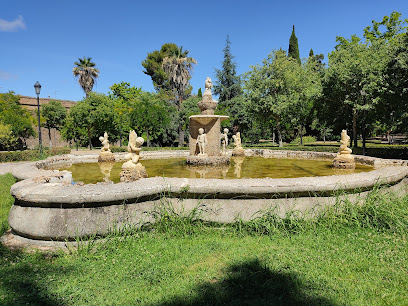
Archaeological Museum of Badajoz
Discover Badajoz's rich history at the Archaeological Museum, where ancient artifacts and captivating exhibits await every curious traveler.
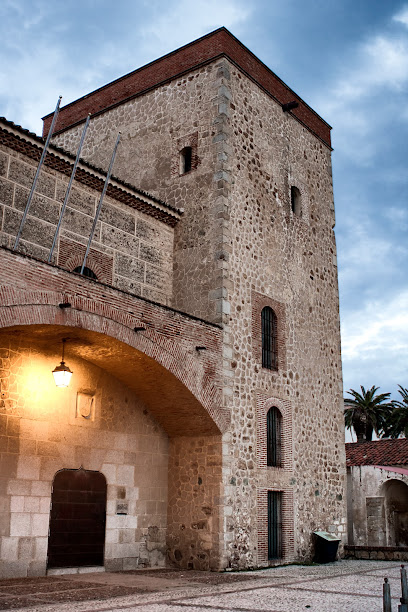
Puente de Palmas
Discover the stunning Puente de Palmas in Badajoz, where history, nature, and engineering merge to create an unforgettable experience.
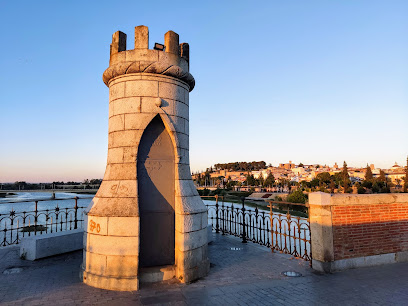
Museo Extremeño e Iberoamericano de Arte Contemporáneo
Explore the vibrant world of contemporary art at the Museo Extremeño e Iberoamericano de Arte Contemporáneo in Badajoz—where creativity knows no bounds.
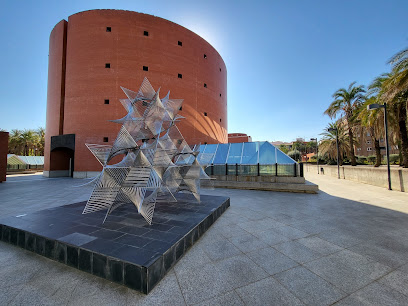
Guadiana Park
Discover the serene beauty of Guadiana Park, a lush green retreat in Badajoz, perfect for relaxation, recreation, and enjoying nature.
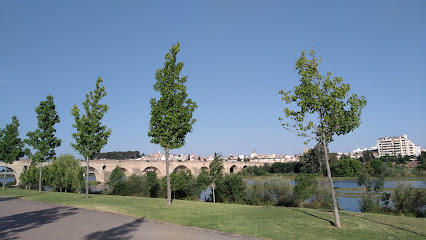
Museo del Carnaval de Badajoz
Explore the colorful history of Badajoz's Carnival at Museo del Carnaval, where vibrant costumes and traditions come to life for an unforgettable cultural experience.
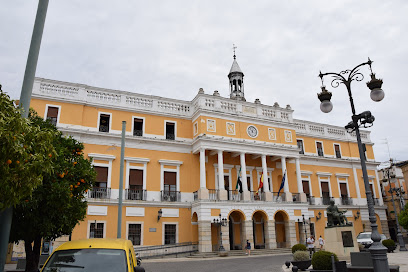
MUBA, Museo de Bellas Artes de Badajoz
Explore the artistic heritage of Spain at MUBA, the Museo de Bellas Artes de Badajoz, home to an exquisite collection of Spanish and European art.
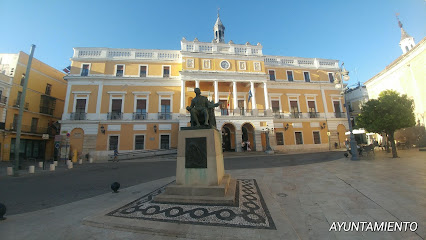
Essential places to dine
La Mafia se sienta a la mesa
Discover authentic Italian cuisine at La Mafia se sienta a la mesa in Badajoz - where every meal is a delicious journey through Italy.
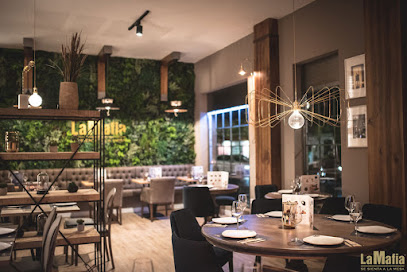
Taberna La Casona Alta
Discover authentic Mediterranean flavors at Taberna La Casona Alta, Badajoz's premier tavern for traditional tapas and hearty meals.
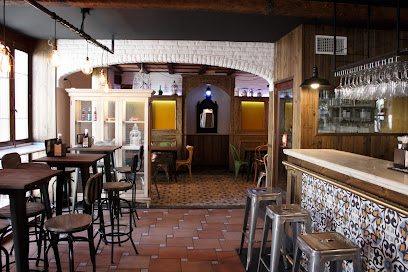
Bar Tapería Ajonegro
Discover the heart of Spanish cuisine at Bar Tapería Ajonegro in Badajoz – where every bite tells a story.
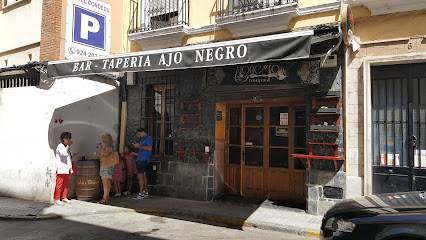
Degusta Badajoz Campañon
Experience the best of Spanish cuisine at Degusta Badajoz Campañon - where tradition meets innovation in every dish.
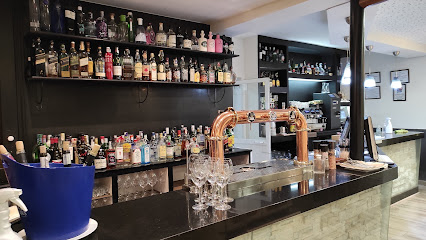
Bodega San José
Experience authentic Spanish grilling at Bodega San José in the heart of Badajoz – where tradition meets flavor!
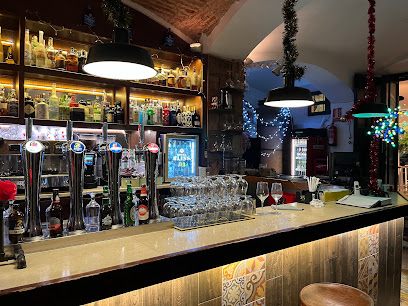
Restaurante Marchivirito
Experience authentic Spanish cuisine at Restaurante Marchivirito in Badajoz - where tradition meets taste.
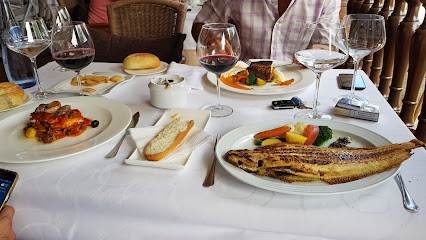
Restaurante GLADYS en Badajoz
Experience the best of European cuisine at Restaurante GLADYS in Badajoz—where flavor meets hospitality.
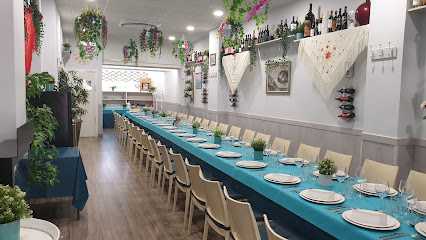
Restaurante Carnívora
Experience the best of Mediterranean and Spanish cuisine at Restaurante Carnívora in Badajoz—where every dish tells a story.
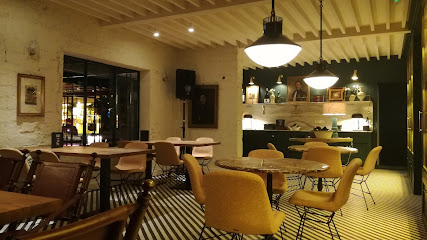
Mariquino
Experience authentic Mediterranean flavors at Mariquino in Badajoz—where quality meets tradition in every dish.
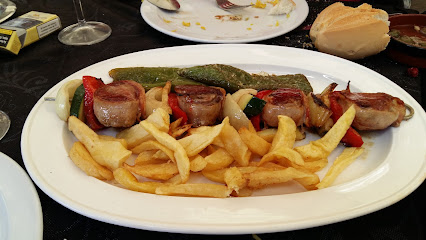
Taberna La Casona Baja
Discover the essence of Spanish cuisine at Taberna La Casona Baja in Badajoz—where tradition meets flavor in every dish.
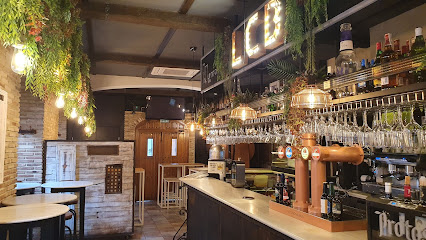
Mesón El Chozo Extremeño. Carnes a la brasa.Comida extremeña
Experience authentic Extremaduran cuisine at Mesón El Chozo Extremeño in Badajoz - where tradition meets flavor.
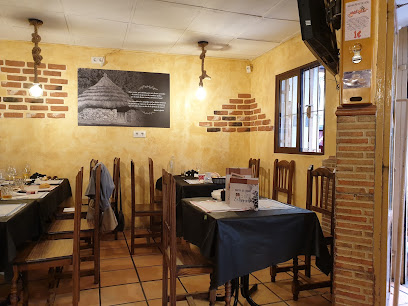
Sansenxo
Experience authentic Mediterranean cuisine at Sansenxo in Badajoz – where every dish tells a story of flavor.
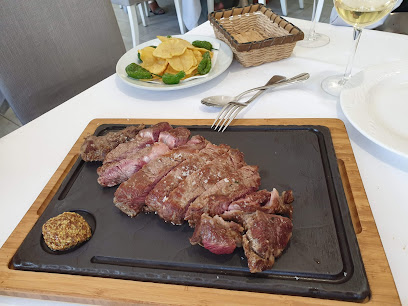
La Bacana Asador & Fondue
Experience the authentic flavors of Spain at La Bacana Asador & Fondue, where grilled meats and fondue delight your taste buds.
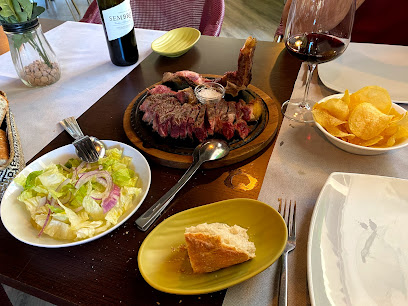
RestauranteGalaxia
Experience the best of Mediterranean and Spanish cuisine at Restaurante Galaxia in Badajoz—where every dish is crafted with passion.
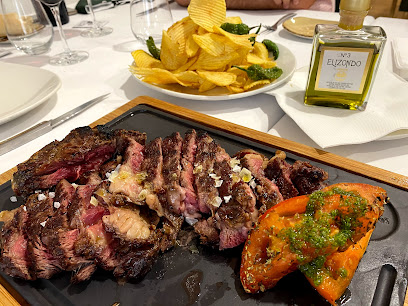
Restaurante La Candela
Discover authentic Mediterranean cuisine in Badajoz at Restaurante La Candela - where flavors meet tradition in a cozy setting.
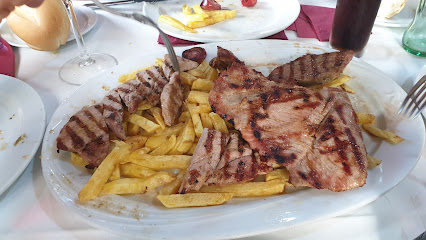
Markets, malls and hidden boutiques
Centro Comercial El Faro
Discover a world of shopping, dining, and entertainment at Centro Comercial El Faro in Badajoz, the ultimate destination for tourists seeking a fulfilling retail experience.
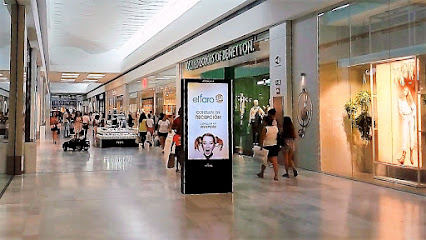
Centro Comercial Conquistadores
Experience the ultimate shopping and entertainment destination at Centro Comercial Conquistadores in Badajoz, featuring diverse stores, dining, and fun for all ages.
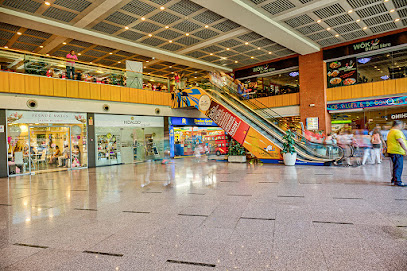
Atelier Badajoz
Discover the essence of modern femininity at Atelier Badajoz, a stylish women's clothing store offering curated collections in the heart of Badajoz, Spain.

Plaza Shopping Center
Discover Plaza Shopping Center in Badajoz: the ultimate shopping destination filled with fashion, dining, and exciting events for every visitor.
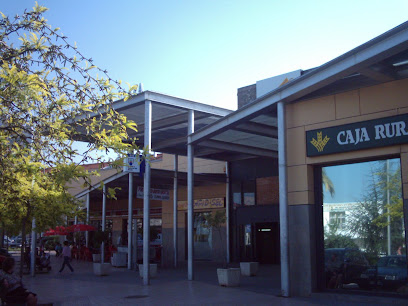
Asia Shop
Explore authentic Asian flavors and ingredients at Asia Shop, Badajoz's premier Asian grocery store, perfect for culinary enthusiasts.
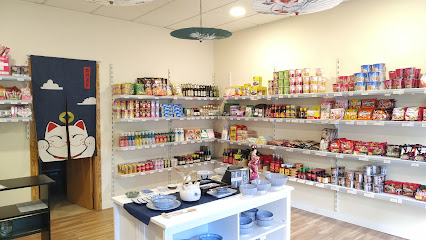
Sol Regalos
Explore the enchanting Sol Regalos in Badajoz for unique gifts and local crafts that capture the essence of Spain.
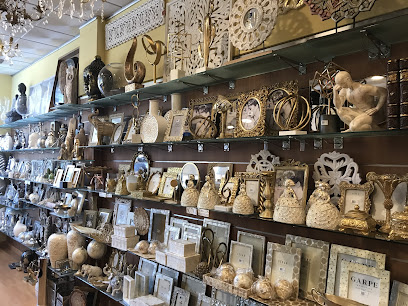
Dorado Vintage
Discover unique vintage clothing at Dorado Vintage in Badajoz, Spain, where timeless fashion meets sustainable style.
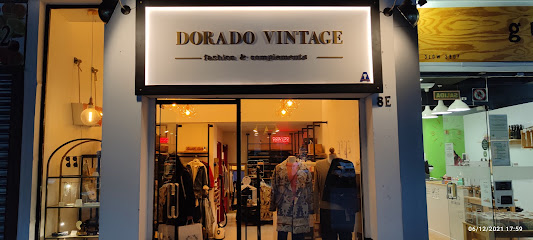
Bellas Cositas
Explore Bellas Cositas in Badajoz for unique gifts, aromatherapy supplies, and collectibles, a treasure trove for every visitor.
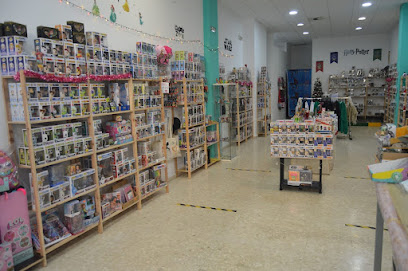
Semilla y Grano
Discover the best organic foods, aromatherapy products, and baked goods at Semilla y Grano in Badajoz, where health meets flavor.
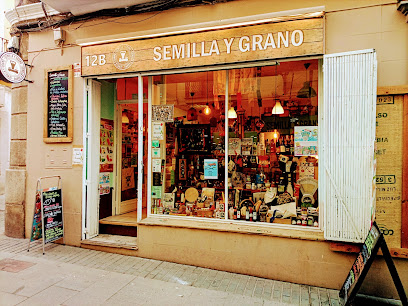
Fly Badajoz Tienda Moda
Explore the stylish and trendy dress collections at Fly Badajoz Tienda Moda, a top-notch boutique in Badajoz, Spain.
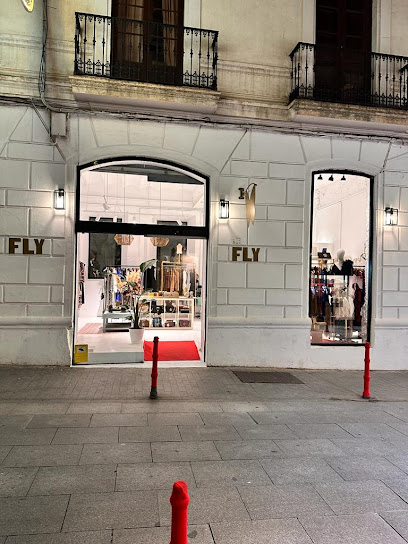
Tienda Esoterica Cosas de Brujas
Discover your spiritual path at Tienda Esoterica Cosas de Brujas, a unique store in Badajoz offering esoteric goods and alternative healing practices.
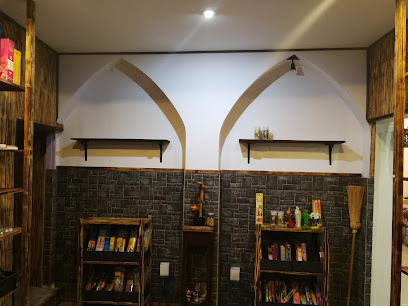
BALABOOSTE EL CORTE INGLES BADAJOZ
Explore a treasure trove of unique gifts, stylish handbags, and fashionable accessories at Balabooste El Corte Ingles Badajoz.
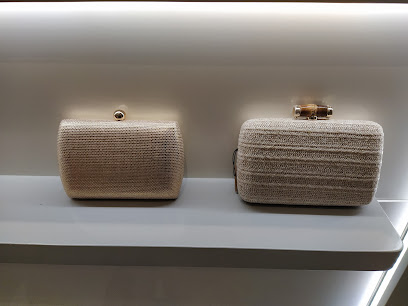
Strass
Discover Strass in Badajoz for exquisite fashion accessories including costume jewelry, chic sunglasses, and stylish women's clothing to elevate your look.
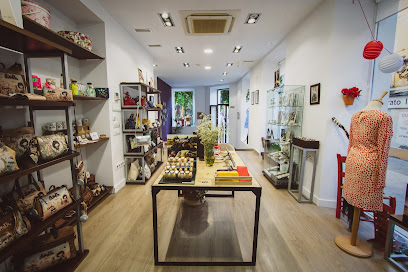
Badajoz Centro Comercial
Discover Badajoz Centro Comercial, a vibrant shopping mall in Badajoz offering a mix of fashion, dining, and entertainment for all ages.
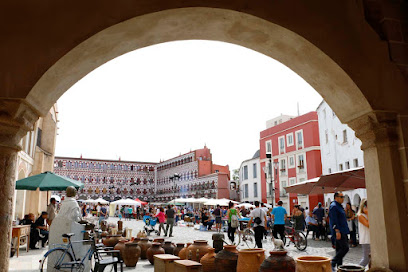
La Gata Loca
Discover La Gata Loca, a vibrant jewelry and clothing store offering unique finds for all ages, capturing the essence of local artistry and style.

Essential bars & hidden hideouts
Pub Rincón Nazarí
Discover the lively spirit of Spanish nightlife at Pub Rincón Nazarí in Badajoz, where vibrant culture meets delicious tapas and refreshing drinks.
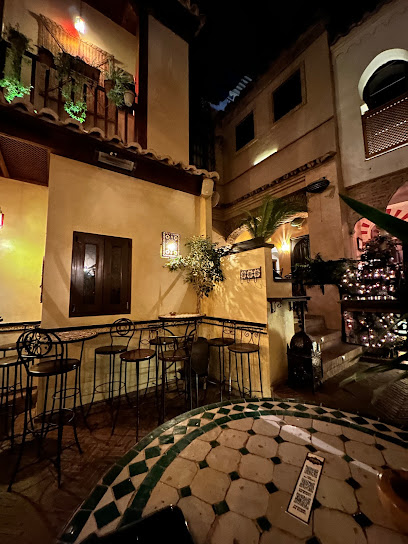
Bar Primos
Experience the heart of Spanish culture at Bar Primos, the ultimate tapas bar in Badajoz, offering a delightful culinary journey.
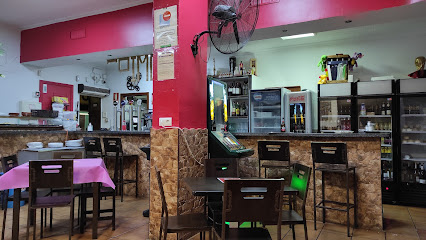
Cervecería Pepe Jerez
Cervecería Pepe Jerez: A Local Gem in Badajoz, Offering Delicious Tapas and a Welcoming Atmosphere for Every Visitor.
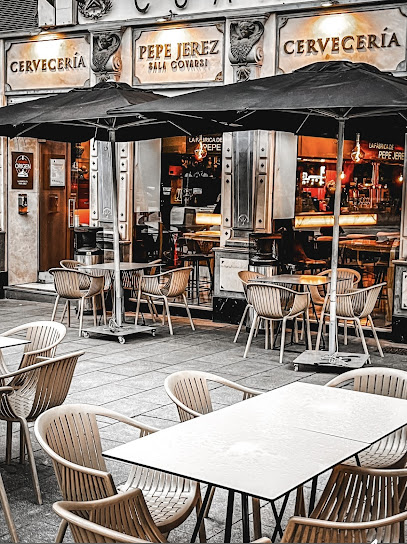
Bar La Corchuela
Experience the authentic taste of Badajoz at Bar La Corchuela, where delicious tapas and breakfast fare come together in a welcoming atmosphere.
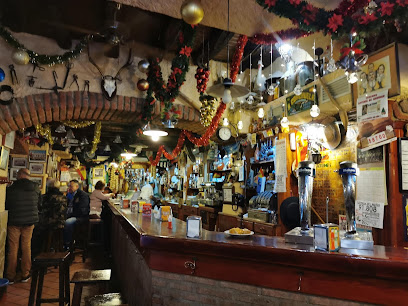
The Irish Tavern Badajoz
Experience the heart of Ireland at The Irish Tavern Badajoz, where traditional cuisine meets lively atmosphere and friendly faces.
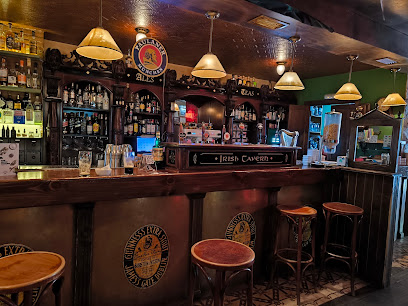
Bar Carmen
Discover the vibrant flavors of Badajoz at Bar Carmen, where local cuisine meets a cozy atmosphere in the heart of the city.
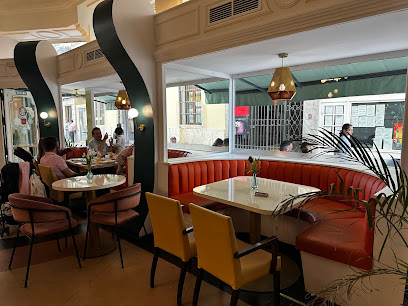
Pub The Blue Parrot
Discover the lively ambiance of Pub The Blue Parrot in Badajoz, where local flavors meet a vibrant nightlife experience.
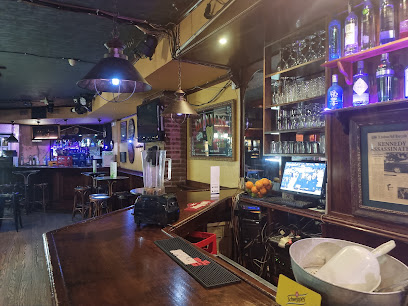
Bar El Viejo Bar
Discover authentic Spanish tapas in the heart of Badajoz at Bar El Viejo, where flavor meets tradition in a lively atmosphere.
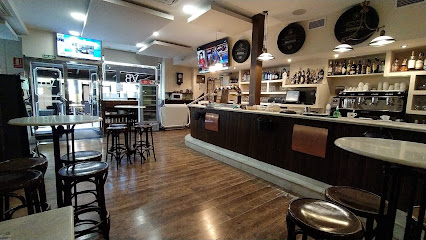
Touareg Lounge Bar
Experience the vibrant atmosphere and unique cultural offerings of Touareg Lounge Bar, a must-visit pub in Badajoz for tourists seeking relaxation and local flavor.
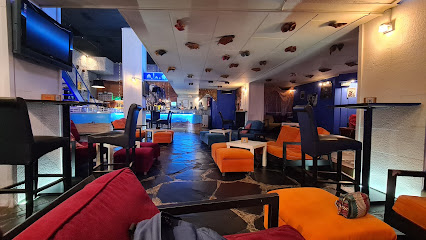
Flidais
Experience the vibrant nightlife at Flidais, a premier pub in Badajoz, blending a lively bar scene with a cozy lounge atmosphere.
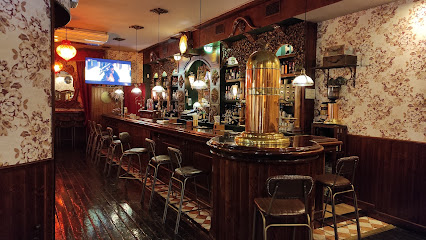
Pub Ohh Cielo Badajoz
Discover the heart of Badajoz's nightlife at Pub Ohh Cielo, a lively piano bar offering a unique blend of music, drinks, and unforgettable moments.
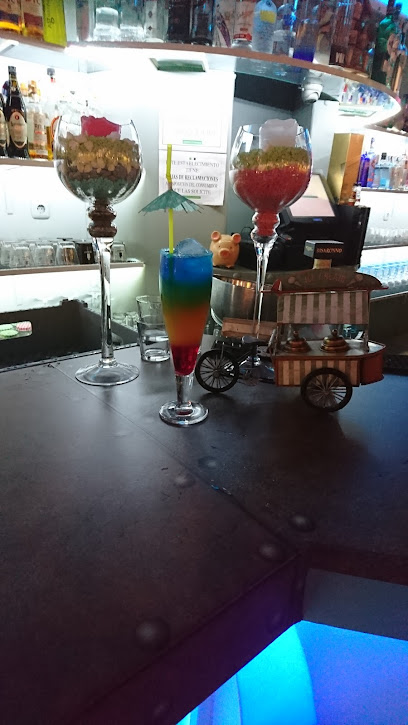
Rock-Pub Koala
Discover the vibrant nightlife at Rock-Pub Koala in Badajoz, where music, laughter, and great company create an unforgettable experience.
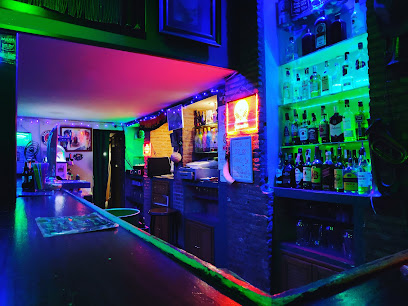
Puertatrece
Discover the vibrant nightlife at Puertatrece, Badajoz's beloved bar offering a wide selection of drinks and a lively local atmosphere.
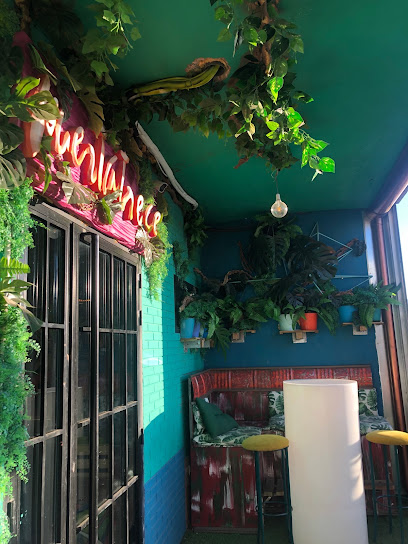
Tienda Gourmet El Silencio
Explore the rich flavors of Spanish cuisine at Tienda Gourmet El Silencio, a charming bar in Badajoz offering gourmet foods and exquisite wines.
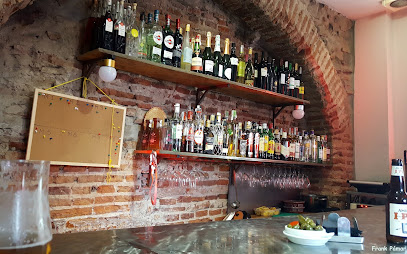
Local Phrases
-
- HelloHola
[oh-la] - GoodbyeAdiós
[ah-dee-ohs] - YesSí
[see] - NoNo
[no] - Please/You're welcomePor favor/De nada
[por fa-vor/de na-da] - Thank youGracias
[gra-thyas] - Excuse me/SorryPerdón/Lo siento
[per-don/lo see-en-to] - How are you?¿Cómo estás?
[ko-mo es-tas] - Fine. And you?Bien. ¿Y tú?
[byen. ee too] - Do you speak English?¿Hablas inglés?
[ab-las in-gles] - I don't understandNo entiendo
[no en-tyen-do]
- HelloHola
-
- I'd like to see the menu, pleaseMe gustaría ver la carta, por favor
[me goos-ta-ree-a ver la kar-ta, por fa-vor] - I don't eat meatNo como carne
[no ko-mo kar-ne] - Cheers!¡Salud!
[sa-lood] - I would like to pay, pleaseMe gustaría pagar, por favor
[me goos-ta-ree-a pa-gar, por fa-vor]
- I'd like to see the menu, pleaseMe gustaría ver la carta, por favor
-
- Help!¡Ayuda!
[a-yu-da] - Go away!¡Vete!
[ve-te] - Call the Police!¡Llama a la Policía!
[ya-ma a la po-li-thya] - Call a doctor!¡Llama a un médico!
[ya-ma a un me-di-ko] - I'm lostEstoy perdido
[es-toy per-dee-do] - I'm illEstoy enfermo
[es-toy en-fer-mo]
- Help!¡Ayuda!
-
- I'd like to buy...Me gustaría comprar...
[me goos-ta-ree-a kom-prar] - I'm just lookingSolo estoy mirando
[so-lo es-toy mee-ran-do] - How much is it?¿Cuánto cuesta?
[kwan-to kwe-sta] - That's too expensiveEso es demasiado caro
[e-so es de-ma-sya-do ka-ro] - Can you lower the price?¿Puedes bajar el precio?
[pwe-des ba-har el pre-thyo]
- I'd like to buy...Me gustaría comprar...
-
- What time is it?¿Qué hora es?
[ke o-ra es] - It's one o'clockEs la una
[es la u-na] - Half past (10)Y media (10)
[ee me-dya (10)] - MorningMañana
[ma-nyana] - AfternoonTarde
[tar-de] - EveningNoche
[no-che] - YesterdayAyer
[a-yer] - TodayHoy
[oy] - TomorrowMañana
[ma-nyana] - 1Uno
[oo-no] - 2Dos
[dos] - 3Tres
[tres] - 4Cuatro
[kwa-tro] - 5Cinco
[theen-ko] - 6Seis
[says] - 7Siete
[syet-te] - 8Ocho
[o-cho] - 9Nueve
[nwe-ve] - 10Diez
[dyez]
- What time is it?¿Qué hora es?
-
- Where's a/the...?¿Dónde está un/el...?
[don-de es-ta un/el] - What's the address?¿Cuál es la dirección?
[kwal es la di-rek-thyon] - Can you show me (on the map)?¿Puedes enseñarme (en el mapa)?
[pwe-des en-se-nyar-me (en el ma-pa)] - When's the next (bus)?¿Cuándo es el próximo (autobús)?
[kwan-do es el pro-si-mo (au-to-bus)] - A ticket (to ....)Un billete (a ...)
[oon bee-yet-te (a)]
- Where's a/the...?¿Dónde está un/el...?
History of Badajoz
-
Badajoz, located in the Extremadura region of Spain, has roots that trace back to ancient times. Originally inhabited by the Celts, the area later fell under Roman control around the 2nd century BCE. The Romans established the settlement of Pax Augusta, which laid the groundwork for the city's future development. Remnants of Roman engineering, such as roads and aqueducts, can still be traced in the region.
-
In the 8th century, following the Islamic conquest of the Iberian Peninsula, Badajoz was founded as Batalyaws by the Moors in 875 CE. The city became a significant center of Islamic culture and power, reinforced by the construction of the Alcazaba of Badajoz, a massive fortress that still stands today. The city's strategic location made it a crucial stronghold in the region.
-
The Reconquista brought significant changes to Badajoz. In 1230, King Alfonso IX of León captured the city from the Moors, incorporating it into the Kingdom of León. This marked the beginning of Christian rule in Badajoz. The city became a vital military and administrative center, with new Christian constructions like the Cathedral of San Juan Bautista replacing older Islamic structures.
-
During the late Middle Ages and early modern period, Badajoz played a pivotal role in the intermittent conflicts between Spain and Portugal. The Treaty of Badajoz in 1801, which ended the War of the Oranges, is a notable event, illustrating the city’s strategic importance. The fortifications of Badajoz were repeatedly strengthened to withstand sieges and attacks.
-
Badajoz was a significant battleground during the Peninsular War, part of the Napoleonic Wars. The Siege of Badajoz in 1812 saw British and Portuguese forces, led by the Duke of Wellington, capturing the city from French control in a brutal and bloody battle. The aftermath left a profound impact on the city's structure and population.
-
Badajoz was heavily affected during the Spanish Civil War (1936-1939). The Battle of Badajoz in 1936 resulted in Nationalist forces capturing the city. The subsequent massacre, where thousands of Republican defenders and civilians were executed, remains a dark chapter in Badajoz's history. The city's role in the civil war is a somber reminder of the conflicts that have shaped modern Spain.
-
In the post-Franco era, Badajoz has experienced a cultural and economic renaissance. Modernization efforts have revitalized the city's infrastructure, while preserving its rich historical heritage. Badajoz today is known for its vibrant cultural festivals, such as the Carnival of Badajoz, which attracts visitors from all over Spain and beyond. The blending of historical and contemporary elements makes Badajoz a unique destination.
Badajoz Essentials
-
Badajoz is located in the Extremadura region of Spain, close to the Portuguese border. The nearest major airport is Badajoz Airport (BJZ), about 14 kilometers from the city center, which offers domestic flights. For international travelers, the closest major international airport is Lisbon Portela Airport (LIS) in Portugal, around 230 kilometers away. From Lisbon, you can rent a car or take a bus to Badajoz. Alternatively, you can reach Badajoz by train or bus from Madrid, which is approximately 400 kilometers away.
-
Badajoz is well-connected by public transportation. The city has an efficient bus system operated by Tubasa, which covers most parts of the city. Taxis are also readily available and can be hailed on the street or booked via phone. For those looking to explore the surrounding areas, car rental services are available in the city. Badajoz is also a bike-friendly city, with several bike rental shops and dedicated cycling paths.
-
The official currency in Spain is the Euro (EUR). Credit and debit cards are widely accepted in most hotels, restaurants, and shops in Badajoz. ATMs are plentiful and can be found throughout the city for cash withdrawals. It is advisable to carry some cash, especially when visiting smaller establishments or local markets.
-
Badajoz is generally a safe city for tourists, but standard precautions should always be taken. Avoid walking alone at night in unfamiliar areas. The city center and popular tourist spots are generally safe, but be cautious in the Cerro de Reyes and Los Colorines neighborhoods, which have higher crime rates. Always keep an eye on your belongings in crowded places to avoid pickpocketing.
-
In case of an emergency, dial 112 for immediate assistance, which connects you to police, fire, and medical services. The main hospital in Badajoz is Hospital Universitario de Badajoz, offering comprehensive medical services. Pharmacies are widely available for minor health issues and over-the-counter medications. It is recommended to have travel insurance that covers medical emergencies.
-
Fashion: Do dress smart-casual, especially when dining out or visiting cultural sites. Avoid overly casual attire like flip-flops and beachwear in the city center. Religion: Do respect religious customs, especially when visiting churches. Dress modestly and keep noise to a minimum. Public Transport: Do validate your ticket when boarding buses. Don’t eat or drink on public transport. Greetings: Do greet people with a handshake. A kiss on both cheeks is common among friends and acquaintances. Eating & Drinking: Do try local dishes like jamón ibérico and migas. Don’t rush through meals; dining is often a leisurely affair.
-
To experience Badajoz like a local, visit the Mercado de San Juan, a traditional market where you can buy fresh produce and local delicacies. Engage with locals, who are often friendly and willing to share stories about the city’s history and culture. Don’t miss the Alcazaba of Badajoz, one of the largest Moorish fortresses in Spain, offering stunning views of the city. For a unique evening experience, enjoy a stroll along the Guadiana River or visit one of the local tapas bars in the old town.
Trending Landmark in Badajoz
-
Alcazaba de Badajoz
-
Paseo de San Francisco
-
Puerta de Palmas
-
Castelar Park
-
Badajoz Cathedral
-
Parque de La Legión
-
Archaeological Museum of Badajoz
-
Puente de Palmas
-
Puerta de Palmas Bridgehead
-
Plaza La Soledad Badajoz
-
Museo del Carnaval de Badajoz
-
Alcazaba Park
-
Fuerte de San Cristóbal
-
Torre Espantaperros
-
Puerta del Pilar
Nearby Cities to Badajoz
-
Things To Do in Évora
-
Things To Do in Viseu
-
Things To Do in Tomar
-
Things To Do in Setúbal
-
Things To Do in Huelva
-
Things To Do in Seville
-
Things To Do in Lisbon
-
Things To Do in Coimbra
-
Things To Do in Caldas da Rainha
-
Things To Do in Sintra
-
Things To Do in Cascais
-
Things To Do in Faro
-
Things To Do in Aveiro
-
Things To Do in Lamego
-
Things To Do in Salamanca












